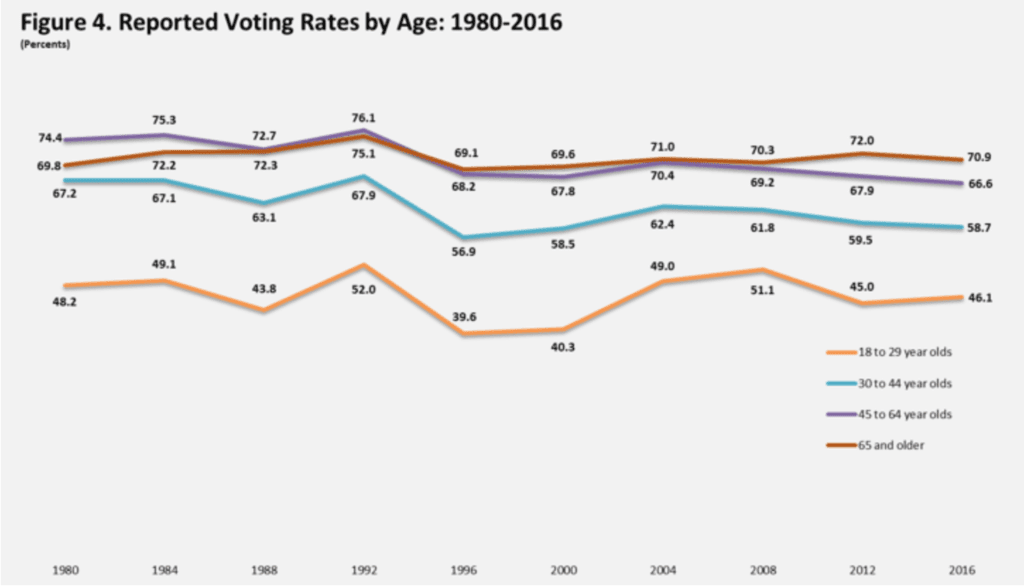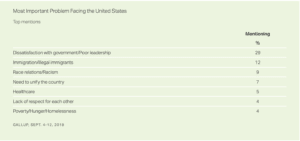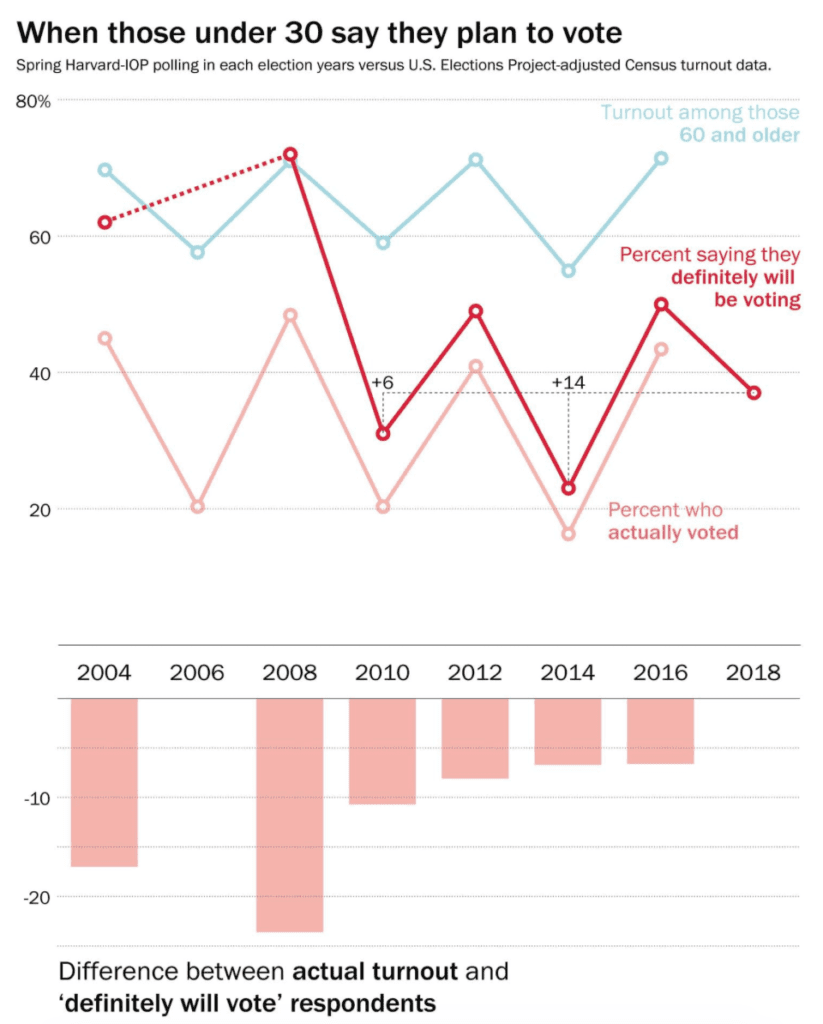Youth Voting: Is It the Issues?
October 8, 2018
Why do young people vote at lower rates than other groups? There are a number of possible reasons. Today, we will look at one possible factor: that the political arena does not address the concerns of young voters. Below, you’ll find a discussion guide and a few resources to help students think about the decision to vote—or not to vote.

- Ask students: If you were to vote in the upcoming election, what would be the most important issues that would determine who you would support? You may want to divide students into smaller groups to come up with issues that can then be shared with the class as a whole. Write down some of the issues that they offer, and place them into categories (Education/Health Care/etc.).
- Either post or hand out the responses to this Gallup poll from September 2018, which asked “What do you think is the most important problem facing the country today?”
 Source: Gallup
Source: Gallup
- Ask students to compare their responses with those of the poll’s respondents. Do they see any differences? If so, what are they? Why do they think those differences exist?
- Have students list issues that they see various campaigns addressing. They should think about the issues that they hear politicians talking about, as well as issues raised in campaign advertisements on television and social media.
- Ask students to compare their concerns with the issues that the campaigns are addressing. Are campaigns addressing the issues they care most about? If not, askthem why they think that is. Ask if they believe this is a factor in why young people vote at lower rates than older voters.
- Have students look at the graph below or read this Washington Post article. Have them explain what the graph demonstrates (that the actual turnout rate of young voters is lower than that of older voters, and that young voters make up a much smaller portion of the electorate than older voters). Ask them if this graph explains to some extent why politicians do not address the issues that young people are concerned about.
 Source: Harvard IOP Pill
Source: Harvard IOP Pill
As a follow-up, have students think about ways to get campaigns to address the issues they care about. Remind them that when it comes to young people and voting, youth turnout can be a “chicken or the egg” riddle: Do politicians ignore the issues that matter to young people because young people don’t vote? Or do young people not vote because politicians ignore the issues that matter to them?








The other day, one of my cousins mentioned she’d like to learn more about political groups before the elections arrive. I found it interesting when you said that young people don’t vote and how teachers can start making a positive change. I’ll talk with my cousin and suggest we research politicians and what they stand for. https://demsforilhouse.com/about-us/